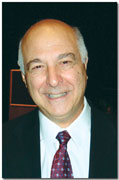 by Bart Basi
by Bart Basi
Many people have heard of the family limited partnership, otherwise known as the FLP. Surprisingly, the term family limited partnership or FLP does not appear in the Internal Revenue Code or any of the accompanying regulations.
Quite simply, an FLP is a limited partnership or a limited liability company (LLC) that is utilized in estate planning. Because of their popularity, many promoters, including attorneys, accountants, and financial planners, improperly use the FLP to line their wallets and bank accounts. As a result, the FLP has become an overused, cookie cutter-like entity to many people in estate planning.
Some unfortunate results
Many promoters of the FLP actively encourage steps that are too aggressive. As a result, individuals insert nearly all personal property into the FLP. Property included in the transfer typically includes houses, business interests, recreational property, and any and all possessions. Including all personal property in the FLP— to the point where it is impossible to be financially viable—is often fatal. The IRS sees right through it, brings it to court, and oftentimes easily wins.
Failure to follow formalities is another fatal event to the FLP. Corporate structures, such as C Corps, LLCs, and S Corps have requirements regarding procedure for continued existence. Such formalities include a charter or by-laws, minutes, elections, etc. Failing to have or follow the charter and rules regarding procedure and formalities is a sure way to give the structure less credibility with a court or other state proceeding. It is nearly universal that those holding a corporation or FLP will not follow the procedure necessary to uphold the use of the corporate entity or its like, with- out the aid of counsel. With this, many FLPs fail and leave the owner with a large tax bill.
Forming the entity, but placing nothing in it is another common folly. Many individuals go to great lengths and expenses to form an FLP, very proper, well utilized entities in fact. The downfall is they do not place sufficient assets in the FLP. This is also common with trusts. Once the instrument is created, you must put assets in it, otherwise the instrument is of no use and the assets outside the entity do not benefit.
Failing to maintain the FLP can also mean the downfall of the entity. Each state has a mandatory fee for every entity registered within its borders. This includes corporations, partnerships, and all other entities. The FLP is no different in they must pay a fee. If this fee is not paid, eventually the entity is administratively and involuntarily dissolved. The result; no benefits from the existence of the FLP.
Jurisdictional issues can also present problems. In any legal or tax strategy, it pays to know the jurisdiction. From a legal perspective, bankruptcy laws differ. Some states offer only a charging order to creditors trying to collect from limited partnerships. A charging order allows creditors to accept distributive payments instead of collecting the principal and assets of the company. It is a less preferred method of collection to the creditor. If states do not allow a charging order, yet offer asset collection methods instead, this is less favorable for an FLP.
The good news is there are plenty of estate planning vehicles which are more appropriate for estate planning than the cookie cutter FLP. The key for many people and estate planning experts is that many variables must be considered. The Center advises and creates many estates and trusts, for the purpose of estate planning. Estate planning should begin immediately if you don’t have one. Don’t let time go by. Plan now and be sure to use a knowledgeable and informed professional.
Bart Basi is an expert on closely held enterprises. He is an attorney, a certified public accountant and the president of the Center for Financial, Legal & Tax Planning, Inc. He can be reached at 618.997.3436.
